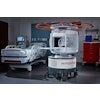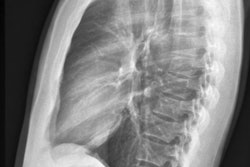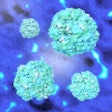
A machine-learning algorithm that analyzed brain MRI scans was able to predict if patients would respond to antidepressant treatment in a study presented this week at the Conference on Machine Intelligence in Medical Imaging (C-MIMI).
Researchers from Stony Brook University in New York trained a machine-learning model that uses analysis of pretreatment structural MRI exams to predict remission in patients with depression. In validation, the algorithm showed high specificity and good accuracy.
"The model has the potential to assist clinicians with a clinical decision-making tool for antidepressant treatment planning," said presenter Dr. Farzana Ali.
In order to reduce patient suffering and alleviate the economic burden to patients, there's a pressing need to be able to predict response to antidepressants prior to initiating treatment. However, no objective markers for predicting post-treatment remission, or absence of depression, have been validated for clinical practice, according to Ali.
"MRI with brain structural measures can provide valuable information before treatment that can be related to the final antidepressant response," she said. "However, the related research findings have been inconsistent. Moreover, there are certain limitations associated with the analysis of neuroimaging data that need to be addressed."
For example, it may not be feasible to assemble a large enough neuroimaging dataset to train a deep-learning network. A smaller sample size can still be sufficient for machine learning, though, according to Ali. In addition, machine-learning algorithms have other benefits, such as being well-suited to handle imbalance data sets and to reduce the number of features analyzed in prediction models.
As a result, they utilized eXtreme Gradient Boosting (XGBoost), a tree-boosting classifier that has been shown to be able to detect depression with greater than 97% accuracy, she said.
"XGBoost allows us to control overfitting by tuning the model parameters," Ali said. "In addition, XGBoost can actually rank the most important features based on their contribution to the predictive model that can be used as objective markers for early prediction of remission."
To test their hypothesis that this classifier could predict remission based on a patient's structural neuroimaging data, the researchers first gathered pretreatment MRI exams from 77 participants with depression who were initiating antidepressant treatment in a single-site clinical trial. They collected 657 structural MRI measures, as well as patient information such as age, sex, treatment status, and handedness.
Of 77 patients, 51 (66%) were used for algorithm training and 26 (34%) were utilized for validation. XGBoost was used to select the five best MRI features for predicting antidepressant treatment response after eight weeks. These features included the following:
- Folding index of left postcentral gyrus
- Number of vertices of left entorhinal cortex
- Gray-matter volume of right fusiform gyrus
- Gray-matter volume of left pericalcarine cortex
- Gray-matter volume of left temporal pole
Next, these five features were then entered into the XGBoost algorithm for supervised training to predict remission or nonremission after eight weeks of treatment, Ali said.
After optimizing the model, the researchers then tested its performance on the validation test set of 26 patients. Of these participants, 16 had remission after eight weeks and 10 did not have remission.
The model yielded high specificity for predicting depression remission.
| Machine-learning algorithm's overall performance for predicting depression remission based on pretreatment MRI | |
| Specificity | 94% |
| Sensitivity | 22% |
| Accuracy | 68% |
"Our future research will focus on assessing performance of the algorithm in external data sets following appropriate parameter tuning with a particular focus on improving sensitivity," Ali said.




















